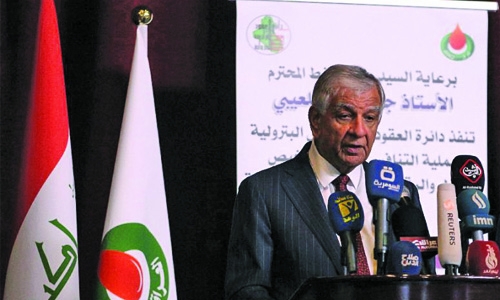Iraq approves oil exploration near Iran and Kuwait
Baghdad : Iraq’s oil ministry said yesterday it has granted licences to explore oil blocs in zones bordering Iran for the first time in half a century.
Licences have been issued to two Chinese companies and one Emirati firm for three blocs close to Iran and one near Kuwait, according to the ministry.
The ministry also granted licences to exploit gas from four fields in Diyala province, northeast of Baghdad.
Under Saddam Hussein, Iraq went to war with Iran between 1980 and 1988 and invaded Kuwait in 1990, before being pushed out of the latter by an American-led coalition.
Since a US-led invasion of Iraq itself in 2003, the country has been blighted by long periods of chaos, culminating in a three-year battle against Islamic State group insurgents.
“After the decades of war and negligence, we have decided to accelerate investment in fields in border areas. These investments will contribute to oil and gas reserves and improve our economy,” said Oil Minister Jabbar al-Luaibi.
“It isn’t logical to leave these regions without investment or development -- that’s why we invited these companies to come and invest,” added Luaibi.
Emirati company Crescent Petroleum won the licence to exploit the Khider Mai field, bordering Kuwait, while Chinese firm Geo-Jade Petroleum won two blocs close to Iran.
Crescent Petroleum will take a 13.75 percent share of profits on any oil it exploits following the exploration phase, while Geo-Jade will receive 14.67 percent from the Naft Khana Field in Diyala and 13.75 percent on its Huwaiza concession in Missan province, in the event they move to extraction.
The fourth of the oil contracts was won by another Chinese firm, United Energy Group, which will receive 4.55 percent of profits for exploiting the Sinbad bloc in Basra province, close to the Iranian border.
The profit-sharing deals for the contracts differ from concessions granted in 2010, which paid companies a set fee per barrel.
Crescent also bagged the licenses to exploit the four gas fields, namely Gilabat, Qumar, Khashim al Ahmar and Injana.
Related Posts

